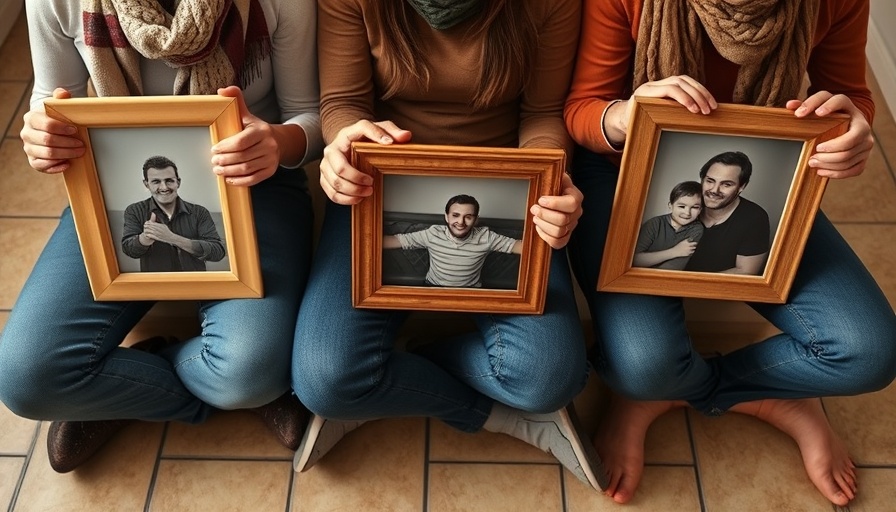
Former Philippine President Duterte in ICC Custody: A Historic Move
In a historic turn of events, former President Rodrigo Duterte of the Philippines has been taken into custody by the International Criminal Court (ICC) in The Hague due to charges of crimes against humanity linked to his infamous war on drugs. Duterte, who led the country from 2016 until 2022, stands accused of endorsing extrajudicial killings that resulted in thousands of deaths, many of which involved alleged drug dealers and users facing violence without trial.
Details of the Arrest and Its Political Implications
On March 12, 2025, Duterte was arrested at Manila airport based on an arrest warrant issued by the ICC after the Office of the Prosecutor submitted a request on February 10 that year. Following a swift exodus from the Philippines, he was flown aboard a chartered jet that made a pit stop in Dubai before finally landing in the Netherlands. Despite Duterte's past claims that the ICC had no jurisdiction over him after the country withdrew from the tribunal's statute in 2019, the ICC maintains authority over actions occurring before that withdrawal.
The Context of Duterte's Drug War
Duterte's war on drugs has long drawn international scrutiny and condemnation. The ICC's charges focus on allegations of systematic killings during this period from 2011 to 2019—a time when Duterte was mayor of Davao city and later as president of the Philippines. Witnesses and human rights advocates testify that thousands of victims were killed under the pretext of a drug crackdown, leading many to describe Duterte's policies as state-sanctioned murder. The investigation and the subsequent trial will shine a light on this controversial chapter of Philippine history.
Public and Political Reactions to the Arrest
Following Duterte’s arrest, supporters quickly assembled outside the Hague detention center, holding banners and flags proclaiming loyalty to their former leader. Demonstrating his enduring popularity amidst the controversies, many Filipinos still resonate with his hard-line stance against crime. Notably, Vice President Sara Duterte denounced the ICC's actions, labeling the situation as a 'kidnapping' that violated Philippine sovereignty. Meanwhile, current President Ferdinand Marcos Jr. emphasized cooperation with the ICC, declaring compliance with the international legal expectations of the Philippines.
The Road Ahead: Upcoming Hearings and Implications
A hearing for Duterte is set to take place soon, where he will have the opportunity to present his identity and understand the charges against him, together with the implications of the Rome Statute. The complexity of the case is underscored by the political ramifications that unfold, not only for Duterte's family but for the country at large with regards to its human rights reputation on the global stage.
Why This Matters to Filipinos and the Global Community
The proceedings against Duterte mark a critical moment for accountability in the Philippines and set a precedent for addressing human rights abuses at the highest levels of government. The international community watches closely as the situation evolves, pondering the long-term implications of the arrest and how it could influence governance and public trust in the Philippines. It's a reminder of the power of international law in seeking justice for victims of state overreach.
Common Misconceptions About the ICC and Its Jurisdiction
Many believe that the ICC can only act against individuals in member states. However, the Rome Statute allows the ICC to investigate crimes that occurred before a state’s withdrawal if those acts fall under specific jurisdictional pretexts. Duterte's case exemplifies the legal nuances surrounding international interventions and the stark reality for leaders who disregard human rights in pursuit of political goals.
How This Situation Influences Future Governance
The unfolding events could signal a shift in how future administrations in the Philippines approach governance and human rights considerations. Political leaders might need to evaluate their strategies more carefully, mindful of the consequences that may arise from the international community's scrutiny and the legal obligations they maintain under international law.
As more details emerge surrounding Duterte's accountability, the world looks on to see how justice will ultimately unravel for the victims of his policies. The repercussions of this trial will undoubtedly echo in the corridors of power throughout Southeast Asia and beyond, prompting reflection on the balance between governmental authority and human rights.
In the coming months, all eyes will remain fixed on The Hague, awaiting developments from the ICC and hoping that vital lessons are learned regarding the importance of protecting human rights in governance.
 Add Row
Add Row  Add
Add 






Write A Comment